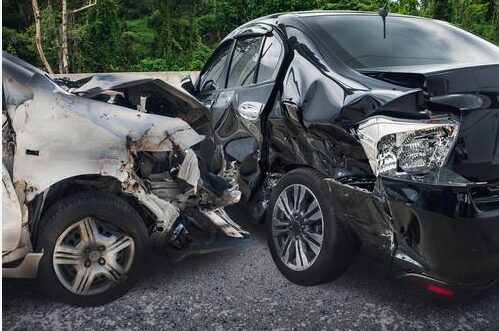Single car accidents are incidents where only one vehicle is involved. They can occur for various reasons, such as driver error, road conditions, or mechanical failure. Understanding these accidents is crucial for improving road safety.
Most single car accidents happen due to losing control of the vehicle. It is important to always keep your eyes on the road and avoid any distractions, such as using your phone or adjusting the radio.
In this blog, we will learn about the factors to consider when filing a claim after a single car accident.
Assessing the Damage
Assessing the damage after a single car accident is a crucial first step. Start by inspecting your vehicle for any visible damage. Take pictures from multiple angles to document vehicle damage.
Check for hidden damage that might not be immediately noticeable. This could include issues with the engine, suspension, or other internal components. A professional mechanic should perform a more detailed inspection.
Report your findings to your insurance company. Provide them with the photos and any notes you have taken. This information will help them accurately estimate repair costs.
Understanding Your Insurance Policy
Understanding your insurance policy is key to managing the aftermath of a single car accident. Review your policy documents to see what types of coverage you have. Common types of insurance coverage include liability, collision, and comprehensive.
Check the specific terms and conditions of each coverage. Pay attention to deductibles, limits, and exclusions. Knowing these details can help you avoid surprises during the claim process.
Contact your insurance agent if you have questions. They can clarify any confusing parts of your policy. Being informed will help you make better decisions and ensure you get the best possible support.
Financial Implications
Single car accidents can have significant financial implications. Out-of-pocket costs can quickly add up, especially if your insurance does not cover all damages. You may need to pay for repairs, medical bills, and other expenses yourself.
Insurance premiums might increase after a claim. Higher premiums mean more money out of your budget each month. It’s crucial to understand how an accident can impact your finances long-term.
Plan for these financial challenges by setting aside emergency funds. Having savings can help you manage unexpected costs. Always review your insurance coverage to avoid surprise expenses.
Legal and Safety Considerations
After a single car accident, there are important legal and safety steps to follow. If injuries occur, seek medical help right away. Always report the incident to the police for their official record.
Consider hiring a car accident lawyer. They can help you understand your rights and guide you through the legal process. This support is especially useful when filing a claim with your insurance company.
Keep safety in mind after the accident. Make sure your vehicle is moved to a safe location if possible. Use hazard lights and set up warning triangles to alert other drivers of the accident.
Evaluating Faults and Responsibility
Evaluating fault and responsibility is a key part of the claims process. You need to determine who is at fault for the accident. This may necessitate filing a claim with your insurance company.
Consult with police reports and any available witness statements. These documents provide evidence that can help assign responsibility. Effective evaluation can streamline the claims process.
Your insurance company will investigate to confirm the fault. They may review driving records and accident scenes. Accurate assessment may necessitate filing a claim to cover damages.
Long-Term Vehicle Value
Understanding the long-term value of your vehicle is essential when considering the claims process. It’s important to know that the depreciation rate of your vehicle affects this value. Over time, a car’s worth decreases due to wear and tear and other factors. This is known as depreciation.
After a single car accident, your vehicle’s value may decrease even more. Insurance companies will use this depreciation rate when determining the amount of coverage they provide for repairs or replacements.
Be aware of how this can impact your finances and future insurance premiums. Understanding the long-term value of your vehicle will help you make informed decisions during the claim process.
Convenience and Time Factors
Convenience and time are two important factors to consider when filing a claim after a single car accident. Most insurance companies have specific procedures in place for filing a claim, and it’s important to follow them to ensure a smooth process.
Be prepared to provide all necessary information and documentation requested by your insurance company. This may include a police report, witness statements, and any relevant photos.
Additionally, be aware that the claims process can take some time. Be patient and communicate regularly with your insurance company for updates. It’s best to avoid making any repairs or settlements until the insurance company has completed their investigation.
Mental and Emotional Stress
A single car accident can also result in mental and emotional stress. It’s normal to feel shock, fear, and anxiety after an accident. Seeking support from loved ones or a therapist can help you cope with these feelings.
In addition, the claims process may add additional stress. Be sure to communicate openly with your insurance company about any concerns or questions you may have. They may be able to provide resources or assistance to help alleviate some of that stress.
Expenses and Compensation
Expenses and compensation are crucial aspects to consider when filing a claim after a single car accident. Depending on your insurance coverage, you may be eligible for compensation for damages to your vehicle and any medical expenses.
It’s important to keep track of all expenses related to the accident. This includes repair costs, rental car fees, and medical bills. Keep receipts and documentation as proof to your insurance company.
You may be entitled to compensation for any pain and suffering or emotional distress caused by the accident.
Final Thoughts on Handling a Single Car Accident
Dealing with a single car accident can be overwhelming. By following the right steps, you can navigate the process smoothly. Remember to assess the damage, understand your insurance policy, and consider the financial implications.
Legal and safety considerations are also crucial. Always report the incident and consult with a lawyer if needed. This ensures you understand your rights and responsibilities.
If you find this article helpful, you may visit our blog for more content.




